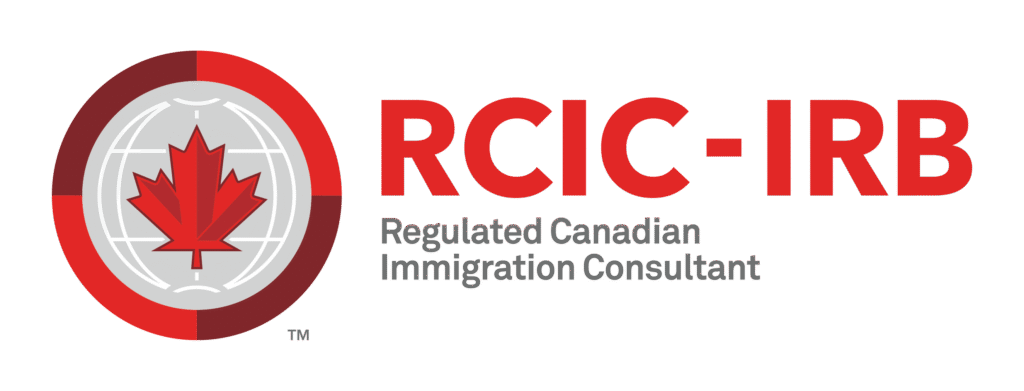Buying a business in Canada

Nowadays, one of the ways to get a work visa for Canada and then obtain permanent residency is by buying a business in Canada or starting a business there. In fact, with this investment approach in Canada, you can immigrate and have your business in the country for good. The business in question can be a company or an establishment like a shop or a restaurant. The business premises may belong to the owner or be rented.
In any case, under certain conditions, you may qualify to buy a business in Canada. The first step in this process is to find a suitable and active business opportunity. You’re probably wondering how? Stick with us in this article to get all the necessary information for purchasing a suitable business in Canada.
Buying an Existing Business in Canada
When you want to own a business in Canada, you have two options:
1. Either buy an existing active business (Buying an existing business)
2. Or start a new business (Starting a new Business)
The option you choose will have different tax implications and will affect the income tax on the assets of that business.
Buying an active business in Canada can be done in two ways. You either pay a specific amount for the entire business or purchase a portion of its shares, which must be more than 51 percent. Since a company is a separate legal entity and can hold assets in its name, a change in ownership of the company’s shares will not affect the taxable value of the assets owned by the company.
Is it better to buy a business in Canada or start one?
The answer to this question depends on the conditions, interests, and personalities of each individual. Buying or starting a business has its own specific advantages and disadvantages.
When you buy a business, you don’t have to start from scratch; things like necessary licenses, the business property, and so on have already been taken care of by the previous owner. The downside of buying a business is that the seller might have an unrealistic and overly high price for it.
On the flip side, starting a business comes with challenges like finding property, getting licenses, the costs of purchasing equipment, hiring staff, and so on.
It’s up to you to decide.
What are the conditions for buying a business in Canada?
Having at least three years of management or ownership experience in a business in your home country (ownership means having all or at least 10% of the company’s shares).
Having sufficient assets and capital to buy a business in Canada.
Buying all or at least 51% of the shares of a business in Canada.
Having an education level of a high school diploma or higher.
Having basic English skills (providing a language certificate is not mandatory).
Advantages of buying a business in Canada:
The necessary licenses for the desired business have already been obtained.
It has the required reputation and credibility.
It has lower risk.
The business model has already been designed, so you don’t have to start from scratch.
It has existing customers, so there’s no need for initial advertising to attract clients.
It has sales and profitability, meaning you don’t need to start from zero.
You don’t need language certification to obtain a work visa.
There’s an option for obtaining a work visa for your spouse and free education for your children in school.
There’s a possibility to obtain permanent residency in Canada through it.
Disadvantages and problems of buying a business in Canada:
Carefully reviewing the business records (due diligence) may be difficult. Since you are not present in Canada, your business broker might not provide you with accurate and precise information about the history of the company or business you intend to buy.
Aligning company documents and checking their validity can be challenging. The seller may show you seemingly correct financial and legal documents, but they may actually be fake or have had changes made in certain areas.
The seller may sell the existing business to you for a price much higher than its actual value.
Implementing new procedures and changes may come with conflicting and opposing views.
Failing to choose the right business that matches your skills, experiences, and business goals will waste your time and money.
Steps to immigrate to Canada through buying a business:
1. Find the business you’re interested in
Look for a business that aligns with your skills, work experiences, and capital amount. Keep in mind that some businesses are regulated. This means you need to have a license or take a course to operate in that field. We recommend consulting with your lawyer on this matter.
2. Hire a business broker and accountant
There’s no law that says you can’t find your desired business on your own; however, since you’re a foreigner, it’s better to get help from an accountant and a broker who knows the local business laws in Canada to select the right business.
3. Prepare your business plan
The business plan you prepare should reflect your financial plans and projects, and most importantly, it should show how the business you’re taking over will positively impact Canada and its citizens, leading to business expansion and maintaining or creating jobs for Canadians.
4. Negotiate, bargain, and finally purchase the desired business
At this stage, with the help of the broker and accountant, you can conduct the necessary research and inquiries about the existing business, ultimately navigating the complexities of negotiation and agreeing on the deal and signing the related documents.
5. Apply for an LMIA permit
The LMIA or Labour Market Impact Assessment is a certification issued by Employment and Social Development Canada (ESDC) that will be positive if you can demonstrate with enough evidence and a strong business plan that purchasing the desired business in Canada will not negatively impact the Canadian job market and its workers but rather have positive effects on the Canadian economy.
Note: Obtaining an LMIA approval when buying a business doesn’t require a one-month advertisement on Canadian websites and newspapers to receive a job offer.
6. Apply for a temporary work visa
Once you receive a positive LMIA from Employment and Social Development Canada, gather the necessary documents for a Canadian work permit and work visa.
Ways to Find and Buy a Business in Canada
You’re probably wondering how to find and then buy a business in Canada. The truth is that buying a business in Canada isn’t that straightforward, and if you’re doing it for the first time, you should definitely look into one or several of the methods below to find and then purchase the right business in Canada:
Business investment magazines and newsletters are often found in populous areas. For example, in southern Ontario, there are several free publications like Business Exchange that are available on magazine racks throughout the Greater Toronto Area (GTA).
Some specialized trade publications related to your industry are also a useful resource, as many relevant businesses are often listed for sale in this section. You can find a list of many Canadian business magazines online on the Business Press Canada website.
Newspapers also have sections where you can find listings of local businesses. Look for real, local businesses, but be cautious about dubious or vague business opportunities.
The internet speeds up business transactions and makes it much easier to connect with various businesses around the world. Through business-for-sale websites in Canada, you can find the business you’re looking for.
Verbal and conversational communication can be a great way to learn and gain insight about a business whose owner intends to sell, but which might not be listed in business-for-sale ads. Networking events and job fairs can provide access to these informational channels; for example, you can reach out to your banker, lawyer, or accountant to find out about such opportunities.
Brokers and intermediaries can help you with the following:
Screening potential businesses for you: Good brokers reject many businesses they are asked to sell because the seller doesn’t provide complete financial details or the business is overpriced. So going through a broker helps you avoid these bad risks.
Helping you determine your interests: A good broker starts by gathering info about your skills and interests, then helps you choose the right business. With a business broker’s help, you might realize that an industry you’ve never considered is perfect for you.
Negotiation: The negotiation process is a crucial part where brokers play their role. They help both parties stay focused on the end goal and maintain composure over any issues that may arise.
Assisting with administrative tasks: Brokers are up-to-date with the latest laws and regulations, which affect everything from obtaining permits to investment and securing deposits. They also know the most efficient ways to reduce red tape, which can shorten the purchasing process by months. Overall, working with a broker reduces the risk of some mistakes.
The best business buying sites in Canada
You can visit business buying sites in Canada and choose the city or province you’re interested in to see businesses available for sale. Some of the best business sale sites in Canada are:
Business Exchange
Business for Sale
Business Sell Canada
BuyAndSellBusiness.com
Canadian Realtor
Two tips for buyers and sellers
1. Business buyers need to be careful because there are many business opportunities on the sales list that are misleading or exaggerated. If a job opportunity seems too good to be true and overly appealing, it’s best to proceed with caution. Remember, if it were that easy to get rich or make $4,000 a week working from home, everyone would be trying to invest in such opportunities.
2. As a seller, before you put your business on the open market, you might want to first discuss it with those around you. You may have had an employee in the past who knows how to run your business and might be interested in buying it. Customers or suppliers who have shown interest in your work previously are also ideal candidates for you.
Important items to consider before buying a business
Below is a list of items you should evaluate before deciding to buy a business in Canada to avoid falling for scams or the wrong businesses:
1. Inventory list
This list includes all products and materials available for resale or use in customer service. The important thing is that you or your qualified representative must be present during the inventory review process. You need to know the inventory status, what is currently available, and how the inventory was at the end of the last fiscal year and the year before that. You should also evaluate the inventory list.
2. Furniture, fixtures, equipment, and building
This includes all products, office equipment, and business assets. Request a vendor list that includes the name and model number of each piece of equipment. Then determine the current status of this equipment, its value at the time of purchase, its current market value, and whether the equipment was bought or leased. Check how much the vendor has invested to improve the maintenance and repair conditions of this equipment. Identify what changes you need to make to your building or layout to meet your needs.
3. Copies of all contracts and legal documents
Contracts include all lease and purchase agreements, distribution agreements, subcontract agreements, sales contracts, union contracts, employment agreements, and other legally binding instruments for the business. Also, evaluate all other legal documents including trademarks of the business, regulations, registered trademarks, copyrights, and so on.
If you are considering having a business with valuable intellectual property, have a lawyer evaluate it. You need to gather the necessary information regarding property leases and related contracts.
4. Incorporation and merger
If the business in question is a corporation, be sure to check in which province or state it is registered and whether this company operates as a foreign corporation in its province.
5. Tax returns for the last three years
Many small business owners use that business for their personal needs. They might purchase products they personally use and charge them to the business account, or they might use company resources to go on vacation or visit trade shows with their spouses. Therefore, you should use your analytical skills and those of your accountant to determine how much the company’s net worth is.
6. Financial statements for the last three years
Evaluate these statements along with all financial records and compare them to your tax returns. This is especially important for determining the earning potential of a business.
7. Sales records
While sales will be recorded in the financial statements, you should review the monthly sales records for the past 36 months. If multiple products are involved in the business, break your sales down into different product categories. Also, separate cash sales from credit sales. This provides a valuable insight into the current activities of any business and helps understand business cycles.
8. Complete list of debts
Consult with a lawyer and an independent accountant to compile a list of liabilities to determine potential costs and legal implications. If the owner has used assets like capital equipment or accounts receivable as collateral for short-term loans, review those. Your accountant should also check for illegal obligations like employee claims, out-of-court settlements, etc.
9. All accounts receivable
Divide these accounts into 30-day, 60-day, 90-day, and beyond categories. Checking the aging of receivables is important because the longer they are outstanding, the less value the account holds. You should also create a list of the top 10 accounts and assess their creditworthiness.
10. All accounts payable
Like accounts receivable, accounts payable should also be divided into 30-day, 60-day, and 90-day periods. It’s important to determine how much cash is flowing through the company. For payments over 90 days, you need to check whether any creditors have the right to withhold company assets.
11. Declaration of liabilities
This includes all significant notes, loans, and any other debts recognized by the relevant business. Pay attention to any business investments that have been made outside of normal areas. Also, take a look at the level of loans granted to clients.
12. Returns
If this is a type of business where customers can be tracked, you need to know specific characteristics related to the current customers, like how many first-time buyers there are? How many customers have been lost over the past year? When is the peak shopping season for the current customers? Which types of products are the most popular?
13. Customer patterns
If this is a type of business where customers can be tracked, you need to know specific characteristics related to the current customers, like how many first-time buyers there are? How many customers have been lost over the past year? When is the peak shopping season for the current customers? Which types of products are the most popular?
14. Marketing strategies
You should find out how the business owner attracts customers. Are they doing it through discounts, extensive advertising, or PR campaigns? You need to get copies of all the policies and sales literature of the business to have an idea of how they sell and interact with customers.
15. Advertising costs
Analyze the advertising costs. Often, for a business, it’s better to defer their end-of-year profits to the following year by spending on advertising in the last month of the fiscal year.
16. Price checking
Make sure to evaluate the current price list and discount plans for all products, the date of the last price increase, and the percentage of that increase. You may want to look back at previous price increases to see what the percentage was and determine when you can raise prices again.
17. Industry history and market
Evaluate the physical location of the business and its surrounding environment. This is especially important for small businesses and retailers that get most of their customers based on the commercial area. You need to conduct a thorough analysis of the business location and the surrounding commercial areas, including economic outlook, demographics, and competition. For service businesses, prepare a map of the jobs in the area. Also, check if there are any special delivery requirements for products, or any issues related to transportation and getting the product to market.
18. Location and placement
Evaluate the physical location of the business and its surrounding environment. This is especially important for small businesses and retailers that get most of their customers based on the commercial area. You need to conduct a thorough analysis of the business location and the surrounding commercial areas, including economic outlook, demographics, and competition. For service businesses, prepare a map of the jobs in the area. Also, check if there are any special delivery requirements for products, or any issues related to transportation and getting the product to market.
19. Reputation and credibility of the business
The business image in the eyes of customers and suppliers is very important. As mentioned, the image or reputation of a business can be considered an asset. To gauge the credibility of your targeted business with customers, suppliers, bank employees, and other business owners active in the area, consult and discuss with them.
20. Seller and customer relations
You need to find out if any of the customers have a special relationship with the current owner of the business. How long has such a relationship existed with the company? What percentage of the business does this customer or these specific customers constitute? Will this customer continue buying from the company if ownership changes?
21. High salaries
There may be some salaries that have increased excessively, or perhaps the current owner has put the name of someone on the payroll who doesn’t work for the company but is related to them. All these possibilities need to be investigated.
22. List of current employees and organizational chart
Current employees, especially key personnel, can be a valuable asset. Evaluate the organizational chart to understand who is responsible for what part. You should also examine the company’s management practices and know the salaries of all employees and their tenure. You need to review administrative contracts and any employee-related files of the company.
23. CCOHS requirements
Investigate whether this facility meets all occupational health and safety requirements and whether it has been inspected before. If you feel that the seller is being secretive in this regard and you see things that you believe may not be safe enough, you can request the Occupational Health and Safety Administration (CCOHS) to conduct an inspection of the site.
24. Insurance
Determine the type of insurance coverage that has been used for operating the business and all its assets. Also, identify who the local company representatives are and how much the insurance premium is. Some businesses operate without insurance and under potentially hazardous conditions in the event of a fire or major disaster.
25. Product liability
If you’re buying a manufacturing company, paying special attention to product liability insurance is crucial. Insurance coverage can fluctuate dramatically from one year to the next, and this can significantly impact a company’s cash flow.
7 Mistakes to Avoid When Buying a Business in Canada
Not thoroughly checking the business’s records
Due diligence is the process of checking the legal, financial, and business history of the company you’re looking to buy. Make sure that the business you’re interested in doesn’t have any outstanding taxes or weak cash flow, and also look for any significant complaints or lawsuits against it. This thorough check will help you determine a fair price for the purchase.
Buying with the wrong goals
Make sure that the business aligns with your current goals and strategic plans, and that you have the skills and knowledge necessary for a successful execution.
Ignoring the culture of the business in question
Business culture refers to how employees work and is a reflection of a company’s goals and values. Look into the management style, employee behavior, business processes, and compensation structures of the target business. If you find significant differences, carefully consider whether buying this business is worth the effort it will take to bridge those gaps.
Not thinking enough about post-purchase goals and plans
Since uncertainty and lack of clarity about working goals and plans can affect enthusiasm, confidence, and order, leading to employee turnover or loss of customers, share your plans quickly and honestly with stakeholders and interested parties. Have a clear approach regarding what will remain the same and what may change in the future.
Delaying in seeking financial support from banks
If you need support and financing from Canadian banks to buy a business in Canada, make sure to talk to your financial partner or sponsor before negotiating the price with the seller. They can help you understand how much you can borrow so you can enter negotiations with the seller with better knowledge.
If you wait too long to do this, your deal could be at risk because once the seller confirms the sale price, the bank might not provide the amount you need or could attach conditions that you might not be able to meet.
Read more: Investing in Canada
Not doing field and online research about the business
We recommend that you take a few days to physically examine the business in question, considering its location, number of customers, and other factors. Also, research the business online (for example, by reading Google reviews).
Buying a business that heavily relies on the previous owner
Imagine you want to buy a massage parlor where a famous Thai masseur works. If this person leaves your business, they’ll likely take their customers with them, and your business could fail; therefore, make sure to buy a business that has little dependency on the previous owner or their staff.
Cost of buying a business in Canada
The price of buying a business in Canada depends on the nature of the business, its physical location, its size, profitability, number of employees, and other factors. Generally, the minimum investment for purchasing a business in Canada should not be less than $200,000.
When you buy a business, you usually pay a specific amount for the whole thing. However, in some sales contracts, separate amounts might be written for each of the company’s assets, such as computers, fixtures, and furniture, a sum for the company’s inventory, like raw materials and goods in production, and if applicable, a separate amount for goodwill.
If the price of each asset of the company is not specified separately in the contract and only a total amount is mentioned, you’ll need to calculate the price of each asset and inventory based on fair market value. The sum of these amounts should match the figure provided by the seller.
For example, you’re purchasing a business for $480,000. The fair market value for the assets and net inventory of the company is as follows:
Accounts receivable: $80,000
Inventory: $40,000
Land: $120,000
Building: $200,000
Total net assets: $440,000
Goodwill is calculated by deducting the value of net assets from the selling price:
Selling price: $480,000
–
Total net assets: $440,000
=
Goodwill: $40,000
What should you do after buying a business in Canada?
If you’ve purchased part of a company’s stock and plan to merge your previous business with the new one:
1. Form a team of new and old members.
One of the first things you should do after buying a business in Canada is to create a core team of managers from both the new company and your previous company (back home) to lead and manage the integration process.
2. Create a targeted operating model.
Design a model for everything that needs to be integrated and how to do it, and assess its performance.
3. Share your model and plan with key stakeholders.
Quickly design your new organizational structure and communicate it to the key members of the company. This helps retain key team members and reduces employee stress.
4. Introduce yourself to customers and suppliers.
Make efforts to maintain relationships with the key customers of the company. If you’re planning changes, reach out to them or meet with them as soon as possible.
5. Focus on your strategy for the desired business.
If a business has been managed in a certain way for years, that doesn’t necessarily mean you have to continue doing it exactly the same way. Think about how you want to move the new business forward. How are you planning to implement your desired changes in the organizational structure? Will the different sections of the company remain the same as before?
6. Provide opportunities for employees to talk and share their opinions.
Buying a new business and merging it with an existing one is a complex exercise in change management. If people still have questions after a few months or resist changes, don’t be surprised. The best way to earn their trust is to frequently communicate with them and be transparent and accessible in your dealings.
Is buying any business suitable for obtaining permanent residency in Canada?
The answer to this question is no. Buying any type of business in Canada does not lead to permanent residency. To obtain residency through buying a business in Canada, your business must meet the following criteria:
Buy a business that is in key economic industries or sectors.
Industries and sectors like:
Agriculture including food/beverage production and food processing
Information and communication technology
Aquaculture
International education
Aviation/aerospace
Mining/mineral development
Biomedical (including research and development, manufacturing, etc.)
Mining and natural resources, forestry
Cybersecurity
Registered inventions
Cultural industries
Transportation
Energy or natural gas sector
Tourism, tourism products, attractions, services, and facilities
Export
Fintech
Agriculture
Film and video production
Financial services
Green economy
Businesses that Canadian immigration officers show reluctance towards in permanent residency applications:
Bed and breakfasts (B&Bs)
Automatic car washes
Businesses associated with payday lending, check cashing, currency exchange, providing ATMs
Recycling metal waste
Cash sales (providing loans against collateral with interest)
Businesses selling second-hand goods (except those offering additional value services like repairs, refurbishing, or recycling)
Tanning salons (for skin tanning)
Real estate brokerage, insurance brokerage, commercial brokerage
DVD rental shops
Activities related to real estate development
Self-service laundries
Businesses related to commodity trading (like exporting/importing) unless they show added value.
Home-based businesses and small farms grown for leisure
Businesses that are involved in producing, distributing, or selling unethical sexual products.
Buy a business that has “major benefit” for Canada.
Activities that provide significant benefits to Canada include:
Developing new services and products
Using modern technologies
Developing innovative approaches to traditional businesses
Increasing Canadian exports
Businesses with added value
Increasing research and development and commercialization of technology
Transfer of technology and specialized knowledge
Providing products or services to a weak local or regional market
Buy an established business that has been operating for at least 12 months.
To apply for permanent residency in Canada, submit documents showing that your new business is actively trading and has sufficient income.
Buy a business that has shown good gross sales over the past 2 to 3 years.
Since your business in Canada must have sufficient profit paths, always buy a business that has over $250,000 in gross sales per year.
Buy a business that aligns with your previous work experience.
An important factor that immigration officers consider in your permanent residency application is whether you have the ability to manage your new business. For this reason, they will review your job history and work experiences in your home country, and your background must be in line with the type of activity the new business engages in.
For example, if you intend to buy a restaurant in Canada but have no experience in the food and hospitality industry in your home country, purchasing such a business for your Canadian permanent residency application is not suitable.
The best business in Canada
There are many profitable businesses in Canada that you can purchase to earn a good income, but as mentioned in the previous section, be very careful when choosing your business and buy one that is suitable for obtaining permanent residency in Canada.
Some examples of small, profitable businesses in Canada include:
Passenger transportation, freight transportation, warehousing, and product storage
Waste management and recycling
Professional financial services
Sports and fitness centers
Read more: Best business in Canada
Buying a business in Vancouver and Toronto, Canada
Fortunately, there are no provincial or regional restrictions on purchasing a business in Canada; therefore, you can buy a business in Toronto, Vancouver, and other cities in Canada. All the conditions, laws, benefits, drawbacks, and points discussed regarding buying a business in Canada also apply to the cities of Vancouver and Toronto. Of course, the laws for company registration in Canada differ somewhat between provinces, but our focus in this article is on buying a business.
After purchasing your desired business in Toronto or Vancouver, like the previous owner(s), you’ll need to submit your annual tax returns to the government, which includes Goods and Services Tax (GST) and Harmonized Sales Tax (HST).
Permanent residency in Canada through buying a business
Canada has set up a system that allows foreign investors, business owners, and managers to obtain permanent residency in the country by buying or starting a business in Canada. However, purchasing a business does not directly lead to obtaining permanent residency; instead, you can apply for a managerial job offer and a work visa after buying a business, and then proceed to apply for permanent residency in Canada.
Please note that with this method, you don’t have to wait a year; as soon as you receive a managerial job offer and get an additional 200 CRS points, you can quickly apply for PR starting the very next day.
Be very careful that if you can’t obtain the necessary points for the Express Entry program, your permanent residency will be canceled, and all the investment you’ve made so far in purchasing and developing the business will be lost.
Once you acquire at least 51% of the shares of a business in Canada and take over its ownership and development, you can apply for permanent residency in Canada through the Express Entry system. Having management experience (managerial job offer) will add 200 points to your Express Entry score. Another requirement of this program is to have an IELTS score of 6 in all four language skills.
Additionally, keep in mind that this method is specifically for purchasing shares in a business in Canada. If you start your business from scratch, the process of getting PR will take longer due to the lack of managerial levels and staff, and you will have to operate for a year.
Frequently asked questions
Do you need to be physically present in Canada after buying a business there?
Yes. As the owner of that business, you’re expected to actively manage your business in Canada, so your presence in Canada is necessary.
Do you have to commit to hiring Canadians after purchasing a business in Canada?
Yes. One of the main conditions for buying a business in Canada and obtaining an LMIA permit, and subsequently a work permit, is that you create job opportunities for Canadians. Failing to meet this requirement can negatively affect your work visa extension and your application for permanent residency in Canada.
Can you sell your business after obtaining permanent residency in Canada?
You must assure the Canadian immigration office that you will still own the business for at least one year after receiving your permanent residency. However, you can sell it after that period.
How long does it take to get a work visa for Canada through purchasing a business?
After finding a suitable business in Canada, it typically takes about 2 to 3 months to obtain the LMIA permit, and after submitting your application for a Canadian work visa, it usually takes about 43 weeks to receive it. However, this timeframe may vary depending on the conditions at the Canadian embassy.
What is the minimum investment required to buy a business in Canada?
Typically, the minimum investment required to buy a business in Canada ranges from $200,000 to $250,000.
Can I get a loan to buy a business in Canada without having PR?
No; you cannot get a loan to purchase a business in Canada until you have secured your permanent residency.





